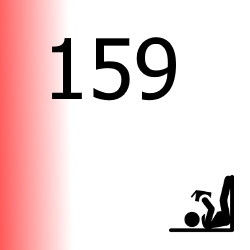Readability of Wikipedia
Abstract
Wikipedia is becoming widely acknowledged as a reliable source of encyclopedic information. However, concerns have been expressed about its readability. Wikipedia articles might be written in a language too difficult to be understood by most of its visitors. In this study, we apply the Flesch reading ease test to all available articles from the English Wikipedia to investigate these concerns. The results show that overall readability is poor, with 75 percent of all articles scoring below the desired readability score. The ‘Simple English’ Wikipedia scores better, but its readability is still insufficient for its target audience. A demo of our methodology is available at www.readabilityofwikipedia.com.References
Matthijs L. den Besten and Jean–Michel Dalle, 2008. Keep it simple: a companion for Simple Wikipedia? Industry and Innovation, volume 15, number 2, pp. 169–178 http://dx.doi.org/10.1080/13662710801970126.
William H. DuBay, 2004. The principles of readability at http://www.nald.ca/library/research/readab/readab.pdf, accessed 20 August 2012.
Rudolph Flesch, 1948. “A new readability yardstick, Journal of Applied Psychology, volume 32, number 3, pp. 221–233 http://dx.doi.org/10.1037/h0057532.
Jim Giles, 2005. Internet encyclopaedias go head to head, Nature, volume 438, number 7070 (15 December), pp. 900–901, and at http://www.nature.com/nature/journal/v438/n7070/full/438900a.html, accessed 20 August 2012.
Alexander Halavais, Derek Lackaff, 2008. An analysis of topical coverage of Wikipedia, Journal of Computer–Mediated Communication, volume 13, number 2, pp. 429–440 http://dx.doi.org/10.1111/j.1083-6101.2008.00403.x.
J. Peter Kincaid, Robert P. Fishburne, Richard L. Rogers, Brad S. Chissom, 1975. Derivation of new readability formulas (Automated Readability Index, Fog Count and Flesch Reading Ease Formula) for Navy enlisted personnel, Millington, Tenn.: Chief of Naval Technical Training, Naval Air Station Memphis; Springfield, Va.: distributed by National Technical Information Service (NTIS).
Ida Kubiszewski, Thomas Noordewier, Robert Costanza, 2011. Perceived credibility of Internet encyclopedias, Computers & Education, volume 56, number 3, pp. 659–667 http://dx.doi.org/10.1016/j.compedu.2010.10.008.
Teun Lucassen, Jan Maarten Schraagen, 2011. Factual accuracy and trust in information: the role of expertise, Journal of the American Society for Information Science and Technology, volume 62, number 7, pp. 1,232–1,242.
Charles K. Ogden, 1968. Basic English: international second language. New York: Harcourt, Brace & World.
Felipe Ortega, Jesus M. Gonzalez–Barahona, Gregorio Robles, 2009. Quantitative analysis of the top ten Wikipedias, In: Joaquim Filipe, Boris Shishkov, Markus Helfert, Leszek Maciaszek (editors). Software and data technologies: Second International Conference, ICSOFT/ENASE 2007, Barcelona, Spain, July 22–25, 2007, revised selected papers. Communications in Computer and Information Science, volume 22. Berlin: Springer–Verlag, pp. 257–268.
M.S. Rajagopalan, V. Khanna, M. Stott, Y. Leiter, T.N. Showalter, A. Dicker, Y.R. Lawrence, 2010. Accuracy of cancer information on the Internet: a comparison of a Wiki with a professionally maintained database, Bodine Journal, volume 3, number 1, article 8, at http://jdc.jefferson.edu/bodinejournal/, accessed 20 August 2012.
Amber Walraven, Saskia Brand–Gruwel, Henny P.A. Boshuizen, 2009. How students evaluate information and sources when searching the World Wide Web for information, Computers & Education, volume 52, number 1, pp. 234–246 http://dx.doi.org/10.1016/j.compedu.2008.08.003.
Dennis M. Wilkinson, Bernardo A. Huberman, 2007. Cooperation and quality in Wikipedia, WikiSym ’07: Proceedings of the 2007 International Symposium on Wikis, pp. 157–164, and at http://www.hpl.hp.com/research/scl/papers/wikipedia/wikipedia07.pdf, accessed 20 August 2012.

